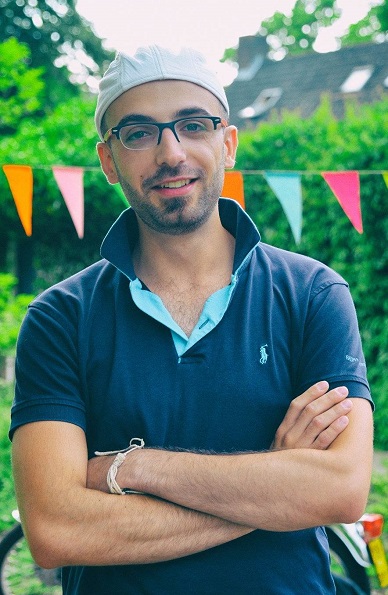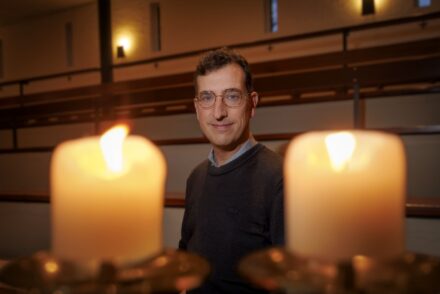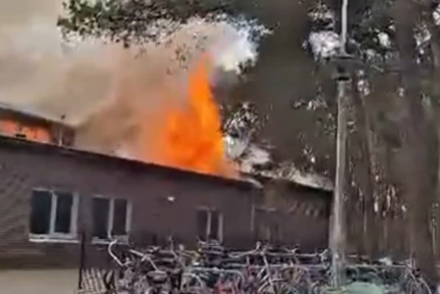What’s next for Syria?
The battle for Aleppo is coming to an end. Backed by Iranian and Russian air forces, the Syrian government has taken back the final rebel-held sections of the city. But what fate awaits Aleppo after the rebels fall? Syrian refugee Ammar Alkhatib, who anxiously follows the latest events in his war-torn home country, is not hopeful. “The situation in Syria is getting worse and worse.”
After four years of intense fighting, the battle for Aleppo is nearing its end. The Syrian government is retaking the last remaining rebel-held eastern parts of the city. But for the tens of thousands of civilians who remain trapped in the war zone, president Assad’s recapture of the city is no liberation. The violence in Syria has not come to an end, it has merely entered a new phase.
The violence in Syria has not come to an end, it has merely entered a new phase
Reports of executions
The residents Aleppo have endured years of siege, bombardments and starvation. Now that Assad and his allies have effectively defeated the last remaining rebel groups in the eastern part of the city, a new chapter of violence has opened up. United Nations officials reported that government troops are going from house to house in rebel neighborhoods, executing civilians on the spot – including women and children. It has also been reported that fleeing families are torn apart as men and women are being separated. According to activists inside Aleppo, fleeing men are detained and forced to join regime forces. Jens Laerke, UN humanitarian spokesman, described the current situation in Aleppo as a ‘complete meltdown of humanity’.
Reports coming from the besieged city are extremely difficult to verify, says Arabist and assistant professor Jan Jaap de Ruiter, because there are virtually no reporters in Aleppo. “What I do know, is that the reports of men and women being separated are true”, he says. “That has been confirmed to me by a source. It’s true that these men are being forced to join government forces. Until recently they were sent to the front lines of the battlefield, where they basically served as human shields.”
“It makes me feel broken”

Ammar Alkhatib
Ammar Alkhatib, who fled from Syria and arrived in Tilburg in 2015, primarily gets his news from Facebook pages from within Syria. He follows the latest reports closely. “I read the news every day. I watch the videos and see the pictures”, he says. “It makes me feel so sad, so broken. It’s difficult to live with.”
Not the end of the war
The battle for Aleppo officially ended on Tuesday, when Assad and his allies declared victory over the rebels. But with the fall of Aleppo, the war for Syria will hardly be over. According to Jan Jaap de Ruiter, the focus of the war will simply move from Aleppo – which was the epicenter of Syria’s bloody civil war during the last four years – to another region in Syria. “The region of Idlib, in the northwestern part of Syria, is the most important opposition-controlled area”, De Ruiter explains. “That’s where the wounded fighters have been evacuated to, and where the final battle will be fought.”
“The final battle will be fought in Idlib, where rebels are still in control”
The civilians who remain in eastern Aleppo await an uncertain fate. Some fear they will be massacred by their own government. De Ruiter also believes Assad’s regime will purge the city of suspected rebel sympathizers. “The Syrian government will try to restore stability, but there will most likely be a cleansing. This regime is not a very humane one.”
Ammar Alkhatib has little hope for a stable and peaceful Syria now that Assad has retaken Aleppo. “Unfortunately, I can’t say I’m very hopeful about Syria. Assad is regaining power and nobody is stopping him. The situation in Syria is going to be worse and worse. To kill the children and destroy all of Syria is not a victory”, he says. “It makes me hopeless. Can you imagine yourself sitting on the other side of the world while your country is being destroyed with all kinds of weapons, watching people flee from their own city under a rain of bombs and buildings falling down on children? My life turns black when I realize that I am so far away, and there is nothing I can do for them.”
What can we do?
The internet is exploding with accusations against the international community for doing nothing while a humanitarian disaster unfolds in Syria. But according to Jan Jaap de Ruiter, criticizing western countries for ‘just standing by and watching’ is not fully justified. “What is happening in Syria is absolutely horrific, but it’s beyond control of the West. The past has taught us that western intervention can make the situation worse.”
“The past has taught us that western intervention can make the situation worse”
So is there nothing we can do? Ammar believes there is. “I hope that the violence will stop, that my family will be safe and that I will see them again. And what we should do here, is share the love and peace among us.”







